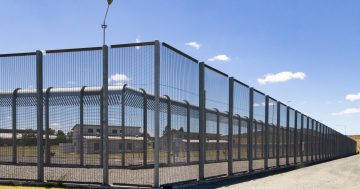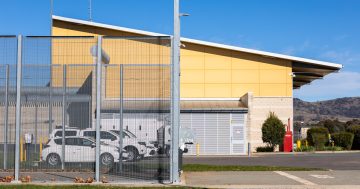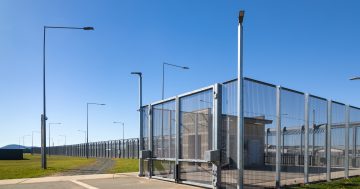
The ACT is one of the last jurisdictions to ban smoking in its correctional centres. Photo: File.
Detainees and staff at the Alexander Maconochie Centre have begun training as the prison prepares to become completely smoke free.
Cancer Council ACT has been brought on board to help everyone quit, as the Territory becomes one of the last jurisdictions to ban smoking in its correctional centres.
CEO Verity Hawkins said a number of “brief intervention training” sessions had already been held in March.
“We know quitting smoking is so difficult, and it’s important for everyone to understand how challenging it can be to quit,” she said.
“This is in readiness of the transition … to inform people who are either supporting those who are quitting or are trying to quit themselves.”
The training involves:
- an overview and understanding of nicotine dependency;
- an explanation of behaviour to expect when quitting and how to identify emotional triggers;
- the impact of nicotine on the brain and body;
- how withdrawal symptoms might present themselves;
- how the impact of other stimulants such as coffee will change when quitting; and
- the different nicotine replacement therapies detainees and staff can access, and coping strategies.
“It’s like training up mentors and peer supporters … training the trainer,” Ms Hawkins said.
“It’s also about giving people choices on how they manage their transition and power over their own transition process.
“Training for brief interventions prepares peers and staff in supporting the quit journey for those on-site at the centre.”
Ms Hawkins said feedback had been positive thus far about the intervention sessions, which have been adapted from other programs being used in prisons across the country.
She said it was important to provide this support within the prison and let people know where to keep accessing support when they left.
“So much is about empathy and understanding the challenges of quitting,” Ms Hawkins said.
“Giving people that realisation just because they may have backtracked, they can have another go … and anyone can access support through Cancer Council.”
While the ACT has the lowest smoking rate in the country at 9.5 per cent, the rates of smoking are much higher at the Alexander Maconochie Centre (AMC), where 82 per cent of detainees smoke.
Extra recreational officers have also been employed at the jail to provide alternative activities to smoking.
Ms Hawkins said while the transition hadn’t formally begun as yet, more than 120 staff and detainees had already chosen to begin the process to quit.
“Most people recognise quitting smoking is the best thing they can do for their bodies,” she said.
Corrections Minister Mick Gentleman said the transition to a smoke-free correctional centre was committed to be fully underway by mid this year. He said it would take place in stages given someone could take a number of months to successfully quit.
He said several free programs would be available to detainees and staff.
“Nicotine Replacement Therapy will be available in the form of nicotine patches and lozenges,” Mr Gentleman said.
“Detainees will also have access to diversionary activities such as exercise, art, barbecues, along with QUIT resources, Justice Health Services and the Winnunga Health Clinic for ongoing support.”
The decision to make the AMC smoke-free was recommended as part of the Blueprint for Change: A New Future for Custodial Services report released last year.



















